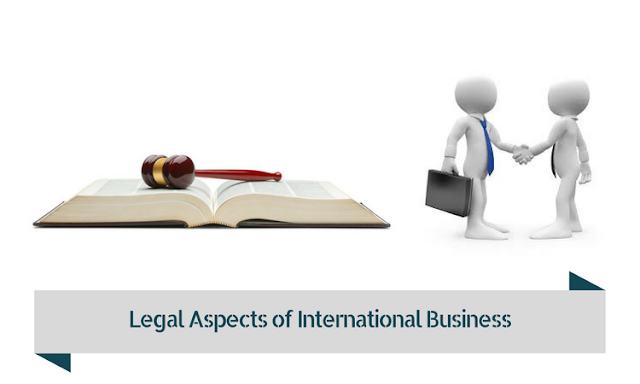The volume of international trade is expanding with each passing day. Both small and big countries are engaged in the import and export of goods and services. All these activities are done under the framework of the mutual contact between parties. On some occasions, disputes and legal problems surface owing to the difference in the offer made by a trading partner and its acceptance by the other trading partner.
If international trade is not processed as per the established norms, it may lead to dispute and litigation. All these create problems of jurisdiction, the applicability of law, enforcement of judgments obtained and affect the trade negatively.
So, here is a complete guide on different legal aspects that are applied in international trade. This will help you to get involved in the international trade with a high level of confidence and avoid the possibility of disputes up to a great extent:
1. Labour and Employment Law
It doesn't matter what kind of business you do, you need knowledgeable and talented employees get involved in foreign trade. When you hire employees in a foreign country either permanently or on a contract basis, you will be liable to follow the country's labour and employment laws. This is where you need to hire corporate lawyers. They can help you to comply with the local labour and employment law and operate your business activities easily and quickly.
2. Compliance With International Trade Rules
When you are involved in international trade, it invokes the national security and economic interests of 2 or more countries. Depending on the business you do, you will have to navigate the regulations to import and export goods. There are many countries which are placed under economic sanctions such as Iran, North Korea, Russia, Venezuela, Syria, Cuba. If you get engaged with business activities with such countries, you should know whether you are dealing with the sanctioned company/bank/firm, etc. If yes, then be careful as you can also fall under sanctions list and damage your prospects of doing business with other countries.
3. Corporate Structure
When you want to do business in a foreign country, you will need to adopt the best in-country corporate structure to achieve your purposes. For this, you need to work with an international PEO to establishing your own branch, subsidiary, or representative office. Each of these options has its own unique cost, tax consequences, capital requirements depending on the company.
4. Taxes
When you do business in foreign countries, tax laws change constantly. It becomes very difficult for you to determine your actual tax liability and pay it easily without hurting your finances. Therefore, you should hire tax specialist lawyers offered by law firms. Based on your business volume, they can easily calculate your tax liability and help you save some hard-earned bucks.
5. Intellectual Property
Patents, copyrights, trademarks, or trade secrets, etc, are some of the most important valuables things that a company can boast of. It also works a lot when you are in international business. Just hire International law firms in India and get carefully crafted licenses, employment agreements, and a host of other contractual arrangements designed to protect your IP without any trouble.
6. Financial Transactions
Disputes may erupt if the involved parties don't follow the trade agreement. It becomes very difficult for anyone to run international trade smoothly if his/her payment (for products/services) is not received fully from other parties. In such scenarios, you can hire a corporate lawyer and solve the matter legally.




No comments:
Post a Comment